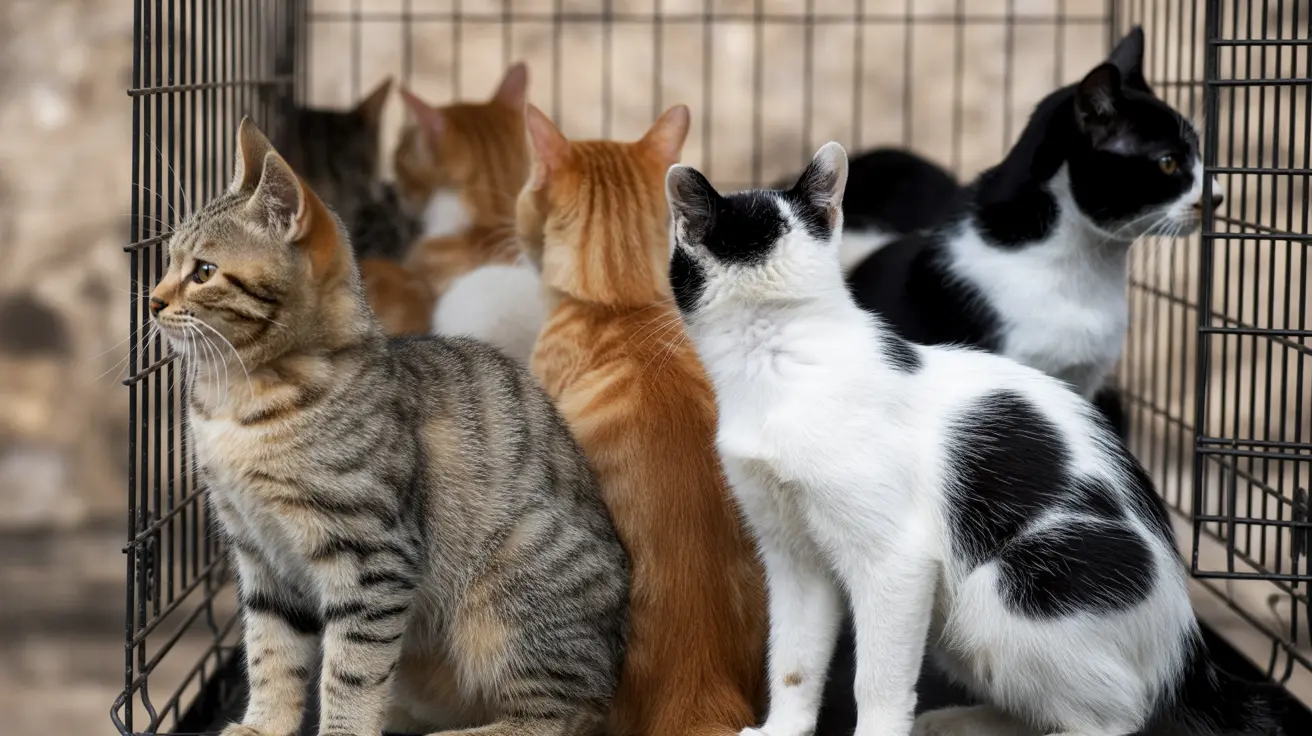The Benefits of Neutering a Cat
Neutering your cat isn't just a responsible choice—it's one that brings a host of advantages for your pet and the wider community. Let's explore why this routine surgery is so widely recommended by veterinarians and animal welfare groups.
Population Control
One of the most compelling reasons to neuter (or spay) cats is population control. Every year, millions of kittens are born without homes. Shelters quickly fill up, and sadly, many healthy cats are euthanized simply because there aren't enough families to adopt them. By neutering your cat, you directly help reduce the number of unwanted litters, easing the burden on shelters and preventing needless loss of life.
- Fewer stray and feral cats in neighborhoods
- Less competition for resources among wild or abandoned animals
- Reduced shelter overcrowding and euthanasia rates
Health Benefits for Your Cat
The health perks of neutering are significant. For male cats, removing the testicles eliminates any risk of testicular cancer and greatly lowers the chance of prostate issues. In females (spaying), taking out the uterus and ovaries prevents uterine infections and slashes the risk of mammary and ovarian cancers—especially if done before her first heat cycle.
- Lower risk of certain cancers (testicular, mammary, ovarian)
- No uterine infections (pyometra) in females
- Decreased transmission risk for diseases like feline leukemia or FIV (spread through fighting)
Cats that have been neutered are also less likely to contract diseases passed on during fights or mating since their urge to roam and fight drops considerably after surgery.
Behavioral Improvements
If you've ever lived with an unneutered male cat, you've probably noticed behaviors like spraying strong-smelling urine to mark territory or trying desperately to escape outside in search of mates. Female cats in heat can be just as challenging—loud vocalizations, restlessness, even urinating around the house.
- Reduced urine marking in males
- No heat cycles or associated vocalizing in females
- Less roaming, fighting, or escaping attempts
Neutered males become less territorial and aggressive. Spayed females don't go into heat at all. Both sexes tend to stay closer to home, reducing their chances of injury from fights or accidents outdoors.
Surgery Timing & Safety
You can safely neuter kittens as young as eight weeks old, though many vets suggest waiting until about five months—often after they've completed their vaccinations. Early surgery prevents unwanted behaviors from developing in the first place. Cats should be healthy before undergoing anesthesia; pre-surgical bloodwork may be recommended for added safety.
Surgical Procedure & Recovery
- Males: A small incision is made to remove the testicles; usually no stitches needed.
- Females: Abdominal surgery removes ovaries (and often uterus); requires a larger incision and possibly an overnight stay.
Cats typically bounce back quickly—most return to normal within days. You'll need to keep them from licking their incision site (an Elizabethan collar helps) and restrict jumping until healed. Follow your vet's aftercare instructions closely for best results.
No Change in Personality
A common myth is that neutering changes who your cat is at heart. In reality, your pet will remain just as playful, affectionate, or independent as before. While their drive to mate disappears—and with it some troublesome habits—their core personality doesn't shift.
Avoiding Weight Gain & Other Concerns
The procedure itself doesn't cause weight gain; rather, reduced activity may lower calorie needs. Adjusting food portions and encouraging play keeps your cat fit. Some studies mention a slight risk of orthopedic issues if neutered extremely early but these cases are rare. Occasionally, older cats might retain some mating behaviors if neutered late—but early surgery usually prevents this.
Financial & Community Benefits
- The cost of surgery is much less than caring for a litter or treating injuries from fights/roaming.
- Reduces public health concerns tied to stray populations.
By choosing to neuter your cat, you're not only protecting their health but also making a positive impact on animal welfare in your community.





